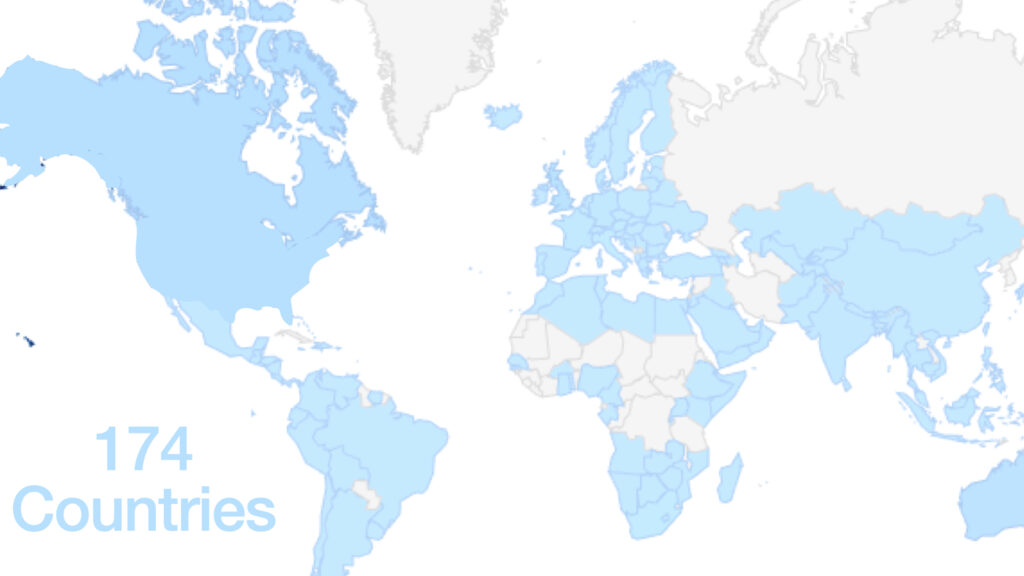Quick Summary: The Christian Publishing Show is now a listener-supported podcast. To stay on the air, we need at least 50 supporters. To track our progress towards this goal (or to become a patron yourself) click here.
One of our stretch goals (at 150 patrons) is to include a blog version of each new episode. The following is an example of what one of those blog versions of a podcast episode might look like.
Origin Story
Once upon a time, the Christian Publishing Show did not exist.
In 2018, Steve Laube invited me, Thomas Umstattd Jr., to join his agency as a literary agent. As you know, the agents of his agency write a weekly blog post. I didn’t want to write a weekly blog post. So I offered to record a podcast episode instead, and Steve agreed.
And that’s how the Christian Publishing Show was born. Our first episode was on writing book proposals, and our guest was Steve Laube.
In subsequent episodes, I interviewed many authors and literary agents:
- Jerry Jenkins
- Susan May Warren
- Angela Hunt
- James Scott Bell
- Jeff Goins
- Tricia Goyer
- Mary DeMuth and many others.

All our episodes are available for free on Spotify, Apple Podcasts, and everywhere else podcasts can be found.
The only problem was that when I became a literary agent and began hosting the Christian Publishing Show, I didn’t quit any of my other jobs.
In hindsight, that was probably a mistake. I was still hosting the Novel Marketing Podcast. I was still hosting two other podcasts and running my company, Author Media. I also managed to be involved in meetups and sit on boards, in addition to being a husband and father.
Season of Pruning
I was spread so thin that on one day in 2019, I literally could not get out of bed. I was so overwhelmed with all I needed to do that I had a complete breakdown.
There I was, the sole breadwinner for my wife and our young baby (and we knew baby number two was on the way), and I couldn’t get out of bed.
Something had to change.
Just a month or so prior to this incident, I had spoken at a writers’ event in Switzerland. While I was there, I took a photo of a 700-year-old tree that had been truly pruned down to its core.

From afar, it looks like a lot of trunk. But when you look closely, you’ll see a bunch of new growth springing from the branches of that pruned tree.
One of the students at the conference said that he felt that tree represented my life and that God was about to prune me down to my very core. And that is exactly what started to happen. Branches started to fall off my tree, so to speak.
I learned how to say “no” to invitations, but I also learned how to say goodbye.
- I sold off my WordPress plugins.
- I stepped down from running meetups.
- I retired two of the podcasts I hosted.
- I stepped down from the board of directors for a nonprofit I served.
Then I had a very difficult conversation with Steve Laube about stepping down as a literary agent. Steve, to his credit, understood.
I left the agency on good terms, but we had to decide what to do with the Christian Publishing Show.
We had listeners all over the world, and we wanted to keep serving them. So, the Christian Publishing Show was one of the few things that survived my season of pruning. And by the end of 2019, the pruning was more or less complete.
I was ready to go into the sunshine of the new year 2020.

I believe God allowed me to do all that pruning in 2019 because when 2020 came, I had extra capacity.
In 2020, most writers’ conferences were canceled, but authors still needed that help. So Steve and I hosted a series of free webinars in lieu of in-person conferences. We taught sessions, and attendees got to ask questions. For many, the Christian Publishing Show became the writers’ conference they were not able to attend.
Steve generously paid for the editing and hosting of the Christian Publishing Show. You may not know this, but Steve Laube quietly keeps a lot of the Christian publishing resources for authors running behind the scenes.
He keeps things like the Christian Writers Market Guide and the Christian Writers Institute running. Often when I’m involved with the Christian publishing industry, people say, “Yeah, Steve helps us or advises us.”
He’s been very kind to sponsor the podcast for so long.
But from a business perspective, it doesn’t make a lot of sense to sponsor the same podcast 100 times in a row. By now, all the listeners have decided whether they want the Christian Writers Market Guide.
For me, from a financial perspective, hosting the show was making less sense. The purpose of starting the podcast was to help me as a literary agent, and I wasn’t agenting anymore.

Since that time, my family has grown, and in December 2021, we welcomed our third baby, Jack. Life is busy, and children (and parents!) are hungry.
What is Happening to the Christian Publishing Show
I love hosting the Christian Publishing Show, but my family must be my priority. Since I’m still the sole breadwinner, I can’t afford to be the volunteer host anymore. And if I can’t make the show work financially, I can’t afford to host it in this season of my life.
But!
But the Christian Publishing Show is important for authors. Many authors find it helpful, so Steve and I talked about what to do with the show, and we’ve made some changes.
The Steve Laube Agency will not sponsor every episode.
But don’t worry. Steve will still be a regular guest, and his episodes will still appear on his website. It simply means you won’t hear a weekly ad for the Christian Writers Market Guide. Speaking of which, the 2022 Christian Writers Market Guide is now available for sale!

We’re moving to a listener-supported model through Patreon.
If you find the show valuable, I hope you’ll consider supporting it financially to keep the podcast on the air. If you can’t afford to support the show financially through Patreon, that’s okay.
But if I can’t afford to produce the show, it won’t continue, at least not in this season.
You might be wondering how many patrons we need in order to keep the show going.
I’ve spent the last month pondering this question. My hope is that God will make it very clear. If he wants me to keep doing the Christian Publishing Show, he’ll bring a lot of supporters, and if he doesn’t, he won’t. It’s a “fleece” of sorts.
But I did figure out how many Patreon supporters we’d need for different levels of engagement.
So here are some goals:
50 Patrons: One Episode Each Month
If we get 50 people to support the show through Patreon, we can keep the podcast alive. I will record one episode for you each month. As I write this, we are not far from 50 patrons.
100 Patrons: Two Episodes Each Month
Our current production schedule has allowed us to create two episodes every month for the past couple of years. But to keep that pace, we will need 100 people to support the show.
I’d love to grow the show and improve the production quality and add some features. So here are some goals if we get 150 patrons or more.
150 Patrons: Add a Blog Version
If 150 patrons support the show, I’d like to start producing a blog post version of each new episode, which will be particularly useful for those of you who find out about the podcast via email.
Some people prefer reading to listening, so a blog version would be a great addition for our blog readers. But making a blog post version of a 30-minute podcast episode is a lot of work. We can’t just throw together a blog post like this one.
For my other podcast, Novel Marketing, it can take three to six more hours of work to create the blog version of the episode.
200 Patrons: Add a Patrons-Only Episode
If 200 people support the show, I’d like to add a third monthly episode exclusively for patrons. If you’re a patron, you can submit your specific questions, and I’ll answer them in the patrons-only episode.
300 Patrons: Add a Fourth Monthly Episode
In all, you will get three episodes in the main feed plus one patrons-only episode, which you will receive only if you are a patron.
Value for Value
How much you support the podcast is up to you. The more you get only from the show, the more you should give back. The Christian Publishing Show has helped replace a writers’ conference a year for some folks. That is a $500 expense (not to mention travel and food, etc.).
I am also adding some bonuses. If you become a patron of the Christian Publishing Show, you get over $250 worth of courses and discounts at AuthorMedia.com. You can find a list of all the bonuses here.
To become a patron of the Christian Publishing Show, visit our Patreon page here.
One Final Story

For years, my wife and I drove by a sign for a local seafood place. It was one of the only local seafood places in town that offered “Reel” tasty home cooking. Every time we drove by the sign, we’d say, “We should go there,” but we never got around to it.
A few months ago, it went out of business. It didn’t survive the pandemic, and we lost our chance to try the “reel” tasty food. I’m sure a big corporate chain restaurant will replace it, but something will be lost. It was a quirky place with great food. We’d heard about it. Our friends had gone there, but we never visited.
How we spend our money is a vote for what we want the world to look like. What you support is what sticks around.
Is the Christian Publishing Show something you want to stick around?
I hope so. And I hope you’ll support us because I would love to keep making the show.
Q & A With Steve Laube and Thomas Umstattd Jr.
If you were unable to join us for the live webinar, you can watch the replay here or read on below to find answers to the questions some of our webinar attendees asked.
Q: What is the top priority for an agent or publisher when they first look at a manuscript?
Steve: The first question I ask is, “Can I sell this?”
But there’s a lot that determines how I answer that question.
If it’s a novel, my first question is “What genre is it?” and “Is there an opening in the marketplace for this type of thing?”
If it’s nonfiction, I ask whether there is a market for the book. Then it comes down to “Who is this author?” and “What kind of audience or platform do they bring with them that will make the big, bad, ugly publishers jump up and down with enthusiasm and excitement and say, “We want to pay the author to publish that book!”
A literary agent works in the traditional market. We’re talking to the big publishers like Thomas Nelson, Zondervan, Harper Collins, Simon and Schuster WaterBrook, and Tyndale. We make our living by making those connections. Major publishers rely on agents to filter submissions and only show them the best that we find.
After a while, they learn to trust our instincts. Even after they trust our instincts, every potential project still has to go into a committee or pub board. In that meeting, there pretty much needs to be 100% agreement to invest in publishing that book.
Never forget, my friends, that publishing is a business. It’s a profit and loss business.
Yes. There is a ministry aspect of every book that Christian publishers produce, and we don’t forget that. At the same time, if the book does not pay for itself, or pay the salaries of all the people involved in the production and sales of the book, then that company becomes like Thomas’s “real tasty home-cooked fish food.” It goes away. It disappears. It goes out of business.
Most of the major publishers survived during the pandemic, but I know of quite a few small presses that did not. They were unable to adapt to the changing marketplace. They were unwilling to continue to invest in their projects, and they abandoned their authors. That’s just awful news when you hear that.
So the very first question I ask is, “Can I sell this?” Is it something that’s going to jump off the page now? Agents who have been around the business a long time already represent many good authors. I already have a very strong roster, so I need a really good reason to add someone new.
It’s like auditioning for American Idol. I receive 25-50 new proposals every week, via mail and email. Imagine if every one of those 50 people were sitting right outside my door in a line.
If I don’t get to them today, there will be 100 people in line tomorrow. If I don’t get through the line that day, there will be 150 people in line after only three days.
If I wait a full month, there will be hundreds of people in that line, and one of them might be able to get through and sit in front of the pub board and sing their song. Even after you sing, you still have to get past Simon Cowell, who might say, “There’s nothing special here. A lot of people can sing.”
I know that sounds cynical and terrible and deflating, but if you don’t understand the competition, you can’t prepare yourself to overcome it. That’s why I like to be very open about this challenge. It can happen. It does happen. Our agency sold half a dozen first-time, never-before-published authors during the past calendar year.
We have a mature agency with four very selective agents. It can and does happen. If you’re not familiar with the processes of traditional publishing or the pub board, listen to Thomas’s interview with Chad Allen on The Christian Publishing Show.
Q: What type of stories are Christian publishers looking for in today’s market? How do you study the current market?
Steve: That’s the unanswerable question of “What’s next?” or “What’s hot?”
I’m asking editors regularly what they’re seeing, what they’re interested in, and what’s working.
In every industry, if something is successful, those who are in charge will say, “Let’s do more of that!”
New authors often wonder why publishers are doing 25 more romantic suspense novels or 15 more Amish novels. Can’t they do something new? When those books are selling, that is what publishers want to publish.
Thomas: It’s important to know the market and not just what’s abuzz in the media. For example, HBO gets more media coverage because of its edgy, sexualized, violent content. That’s what the media likes. That’s what does well on social media.
But what people are actually watching is the Hallmark channel. There’s a larger market for the Hallmark channel, and Hallmark has better ratings by a wide margin.
It’s easy to pooh-pooh and say, “It’s just the same storyline over and over and over again!” But millions of people tune in for that storyline. That’s what millions of people want to buy and watch.
Steve: Part of studying the market is to become a fan of your genre. I have several clients who write fiction, and they will not read books in their genre because they don’t want to accidentally steal an idea. At the same time, they’re already in the genre, and they’re the ones creating the ideas.
Thomas: But by not reading books in the genre, you might accidentally have the same idea as another author, which, in my opinion, means you still need to be reading in your genre.
Steve: I know. And that happens a lot too. Just become a student of the industry and a student of the market.
Nonfiction is a little more challenging because you have a burning passion for a topic. You can usually judge by an audience’s reaction if there’s a market to support it.
If you want to start writing what you’re hearing about in the media, you’re too late. If you start today, your book will not come out until the end of 2023, maybe 2024. We have books contracted with our clients into 2026 already.
Publishers are looking into the future. They’re contracting authors and locking them in. They’re not looking at the past or present. They’re trying to project what will sell in the future.
Thomas: As you’re looking for ideas, it’s important to know who your target readers are. Are they watching Hallmark or HBO? Cause there’s not a lot of overlap between those audiences.
Many trends in fiction start in popular video games and what’s popular in a video game.
For example, split-time took off in fiction. But do you know who had been doing split-time for a long time? Assassin’s Creed, which is one of the biggest video game franchises. The whole game is split-time.
As you write more, you’ll start to see what movies are resonating, like the most recent Spider-Man movie.
That doesn’t mean you write the next Spider-Man book, but there are things about the Spider-Man movie and how the message is presented that resonate with its audience. It might behoove you to watch the new Spider-Man movie and find out why it resonated when all these other movies that came out last year failed.
Steve: If you’re writing fiction, you should know which books won the Christie Award last year. The Christie Award is the Oscars of Christian fiction. You might object and say, “That’s what happened a year and a half ago.”
Yes, it is. But it also tells you what books are being acquired. A panel of heavily vetted judges choose the best books as winners.
You should also look at the bestseller lists. Books are listed on the bestseller list because they’re selling. It doesn’t mean the book will win a Pulitzer Prize. Bestseller status means that it’s tapping into an ethos or a need in the community, and that information can help you make decisions.
Novelists often write from their interests. You’re fascinated by a topic or time period, and you’ve done your research. You’ve written your novel, but nobody wants it. It’s a genre that nobody’s reading. When you talk to editors, their eyes glaze over. Agents get surly and grumpy when you present your novel.
Do you change, or do you stick with it? Because the market, as we’ve described, is moving like this all the time. If you try to catch it, you never will.
But if you stay with it, eventually the market catches you. This happened to one of my clients who was writing an Edwardian fiction, meaning a Downton Abbey type of story. But there was no Downton Abbey at that time.
Suddenly Downton Abbey was popular. An editor remembered this author and her proposal. She contacted us and said, “Can I contract that? The book is already written. We could have it published really fast.” She “took advantage” of a trend.
As Downton Abbey continued to have its seasons, people began to flock to that genre. Now that the show is over, interest in that genre has begun to wane, but two or three authors who write Edwardian fiction are now established as authors in that category. And they always will be.
Fans of that category will continue to go after that writer.
It’s challenging when you’re starting in this industry to figure out where your niche, your interests, and the market overlap.
Q: How can an unpublished fiction writer build a platform that will appeal to publishers?
Thomas: I have another podcast called Novel Marketing. It’s geared towards people who are getting started in fiction. All our episodes are about promoting a book you’ve already published and building a platform.
There’s a lot to learn about building a platform. I have many free podcast episodes about it as well as a course on platform building.
Steve: I have a new definition of platform in the context of traditional publishing, which I’m now going to repeat a billion times for the rest of my life.
Think of it this way. Platform is when the marketing and sales director at a major publishing company says, “Oh, good! I don’t have to work to sell this.” That is platform.
In other words, you have brought an audience with you who wants to buy your book, and that makes the publisher say, “Oh wow. We can just put this out there. There are already 10,000 people salivating over this book.”
It isn’t about sheer numbers. People ask me, “If I have 9,000 people on my email list, does that mean I can’t get published? Do I need 10,000?”
There is no magic number. But you do need people who are invested in you and your work.
How do you do this with fiction? It’s a challenge, but you can make yourself delightful. You can make yourself someone that people want to hear from.
Thomas: On my other podcast, I released an episode called the 2022 Social Media Guide for Authors. I reviewed each major social network and explained what kind of author might be a good fit for each network. I cover which techniques are working in 2022. Sometimes the tools that worked in 2014 don’t work anymore. It’s important to learn what works and what doesn’t so that you don’t waste a lot of time.
The indie (i.e., self-published) version of Steve’s platform definition says, Platform is the confidence of knowing you’re going to make your money back on your next book. Indie authors build platforms by writing multiple books. You build, start writing books, buy ads for those books, and gain an audience that way.
The other general tool I recommend for novelists is writing short stories. Mastering the art of short stories helps you improve your writing faster than writing entire books. Once your short stories are great, you can start giving them away in exchange for a reader’s email address, and that will grow your email list.
Steve: You can do the same thing with nonfiction by using blog posts, short articles, and PDFs that you give away on your topic. You build a following by offering consistent content.
If you send me a proposal and I visit your website, one of the biggest mistakes I see is an abandoned blog that hasn’t been updated in two years. It indicates the author gave up or stopped hustling. They haven’t been publishing consistent content.
There could be several reasons for that, including health and family concerns, but when an abandoned blog is the first thing I find, I factor it into my interest in that individual.
Thomas: The people who were reading your blog two years ago have now moved on. Their routines have changed in the last two years, and they’re not going back to your website. You kind of have to start over if you take a break for that long.
Q: Boiling an entire novel down to a three-page synopsis was brutal. Would you give us tips on how to do that?
Thomas: I have an episode on that too, but I’ll let Steve answer.
Steve: That’s going to be the worst writing you’ve ever done because it sounds like “See Dick run. See the red ball bounce. See the alien blow up a planet.”
It’s not intended to be grand literature. Imagine someone has said to you, “I will give you 15 minutes to tell me your entire story from beginning to end.”
You’re the only one talking, and you must cover all aspects of the story in 15 minutes, maybe 10 minutes. That’s three single-spaced pages. An editor or agent needs to know how your finish the story. We have the first three sample chapters, but we want to see how you complete the story arc.
The synopsis is the only part of the proposal that’s never really looked at again. People practically kill themselves to create the perfect synopsis, and we speed read it.
I’m trying to say that the synopsis is a necessity because we want to know how you are going to finish the whole book, but don’t kill yourself over its production. Just put it on paper and as best you can.
Search Google for “how to write a novel synopsis.” There are some great tips out there.
We even have a couple of courses in the Christian Writers Institute that will give you ideas about writing your synopsis. Work at it, but don’t obsess over it. Your book is not going to not sell because you wrote a bad synopsis. But it has a better chance of selling if you’ve written an acceptable synopsis that at least gives me the concept of the story.
Thomas: A good synopsis will help you down the road when it comes time to market the book. Cover designers read the synopsis to get ideas for the designs they create.
My episode on pitching, which is similar to writing a synopsis, may help. It comes with a free worksheet to help you. I provide several different methods. You can fill out the worksheet, and you’ll have your own pantry of ingredients from which you can mix up your synopsis.
Q: Where can I find more answers to my publishing questions?
Steve: The theme of this webinar has been “search our websites.” Look for the little magnifying glass search bar at the top of our websites.
The Steve Laube Agency Blog has approximately 1500 free blog posts on topics related to publishing.
Novel Marketing has more than 300 free episodes about platform building, publishing, and promotion. Begin educating yourself. The answers are there, and many of them are free.
We can give you a tip and point you in the right direction, but if you really want an answer to that question, spend an hour searching our websites for the topic you’re wondering about.
Thomas: I created a website called PickThomassBrain.com. It’s a custom search engine that searches both the Novel Marketing and the Christian Publishing Show sites, and you can use it for free.
If you ever wonder whether I have an episode about something, visit PickThomassBrain.com and search for the topic.
I produce the Christian Publishing Show because I want to help answer questions like these.
We’ve given high-level answers. The podcast episodes are meant to be a more in-depth answer to help you on your publishing journey. I see myself as Spock, and you are Captain Kirk. I want to help you go farther, faster, safer, and not get killed by the Klingons.
If you’d like to see the Christian Publishing Show continue to provide the answers you need, please consider supporting the show through Patreon. I’m eager to continue answering your questions about your Christian publishing journey.